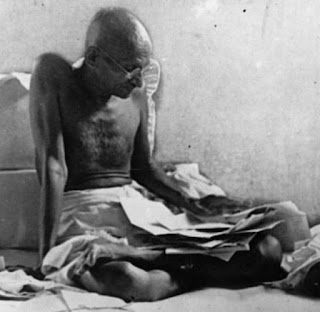On September 16, 1932, in his cell at Yerwada Jail in Pune, Mahatma Gandhi began a hunger strike to protest British support of a new Indian constitution.
On September 16, 1932, in his cell at Yerwada Jail in Pune, Mahatma Gandhi began a hunger strike to protest British support of a new Indian constitution.
This constitution granted the country's lowest classes, known as "untouchables," their own separate political representation for a period of 70 years. After a six-day fast, the British government accepted the principal terms of a settlement between higher caste Indians and the untouchables, leading to the reversal of the separation decision.
As India gradually moved towards independence, Gandhi's influence continued to grow. He persistently resorted to hunger strikes as a method of resistance, recognizing that the British government would be unable to withstand the pressure generated by public concern for the man they referred to as Mahatma, or "Great Soul."
On January 12, 1948, Gandhi undertook his final successful fast in New Delhi, aiming to persuade Hindus and Muslims in the city to work towards peace.
Unfortunately, less than two weeks after breaking that fast, he was assassinated by a Hindu extremist while en route to an evening prayer meeting on January 30.











Comments
Post a Comment